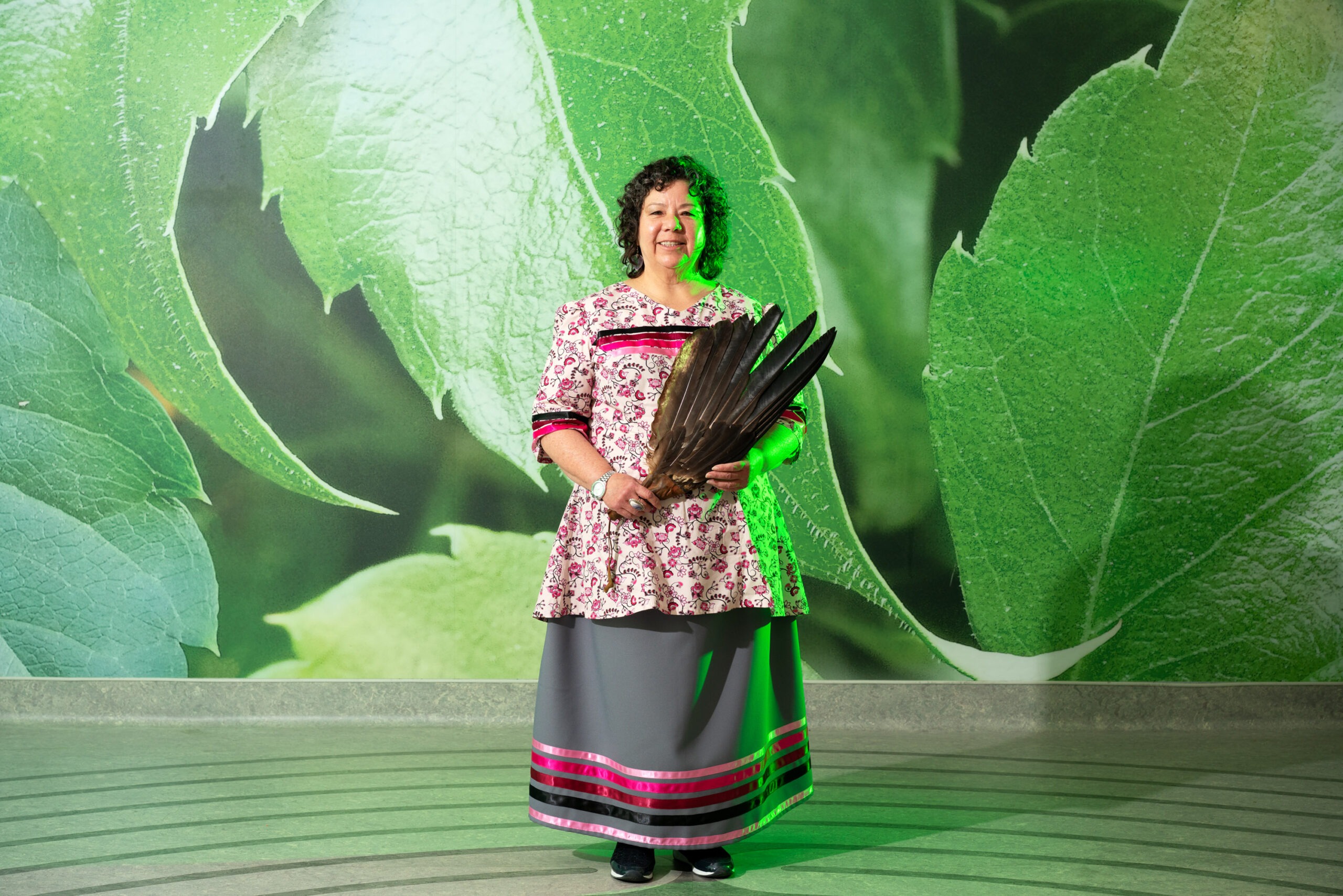Providing access to healing and wellness services for First Nations, Inuit and Métis patients

On a Wednesday afternoon in March, a small group gathers in the Labyrinth at Women’s College Hospital (WCH). The room’s natural light and verdant mural warm the intimate setting as Kawennanoron Cynthia White, Elder-in-Residence and Traditional Healer at the hospital’s Centre for Wise Practices in Indigenous Health, opens the ceremony. The culmination of years of relationship building and education, the ceremony is to present Smudge Kits to key clinics as part of a larger effort to provide First Nations, Inuit and Métis (FNIM) patients with access to culturally appropriate healing and wellness services.
Carefully prepared by the Centre for Wise Practices team, the Smudge Kits contain sage, sweetgrass and tobacco for smudging and making prayer offerings. The medicines are meant to be kept in areas where they can be seen and requested by FNIM patients waiting for their appointments.
“Having access to sacred medicines is so powerful,” says Christine Monague, Indigenous Peer Support and Relations Advocate. “In my work with Indigenous patients, who are often navigating difficult or stressful situations, I have seen what a difference simply being handed sage or sweetgrass can make. Having access to smudging provides comfort and grounding, and really signals that the hospital is a culturally safe place.”

Prior to receiving the kits, clinical teams are provided with training and guidance on how to handle the medicines and support patients in accessing them. Many have also participated in Indigenous Cultural Safety & Trauma Informed Care Sessions with the Centre for Wise Practices.
At the Centre for Wise Practices, leading this kind of work requires a multi-disciplinary team of Indigenous clinicians, Knowledge Keepers and community leaders who build relationships with teams across the hospital with a focused commitment to the health and well-being of all FNIM individuals, families and communities.
“There are many barriers to healthcare due to historical and ongoing systemic mistreatment faced by First Nations, Inuit and Métis,” says Dr. Lisa Richardson, Strategic Lead in Indigenous Health at WCH. “Creating a health system that recognizes and respects Indigenous knowledges and world views is critical to dismantling these systems of oppression – and integrating access to Indigenous healing and wellness supports is a big part of that.”

As part of this ongoing work to provide access to traditional health services, the Indigenous Health Clinic was also integrated into the hospital’s electronic medical record system, Epic, in February. Through this integration, FNIM patients and community members can now be referred to see White in her role as the Traditional Healer and Elder-in-Residence, just as they would any other practitioner at Women’s College.
White is Onondaga Snipe Clan from the Mohawk community of Akwesasne, currently living in the Six Nations Grand River Territory. She has been actively engaged in her personal healing and spiritual training since 1996. As a Ceremonial Leader and Traditional Healer, she creates a sacred space for individuals to meet with spirit for healing and transformation.
“This is a truly important step towards reconciliation in healthcare,” says White. “If there is no love, there is no healing. There are some health concerns that may not be completely addressed by the western medical model – providing access to holistic and culturally relevant services that take into account mental, emotional, spiritual and physical wellbeing will go a long way in improving health outcomes for First Nations, Inuit and Métis patients and families.”